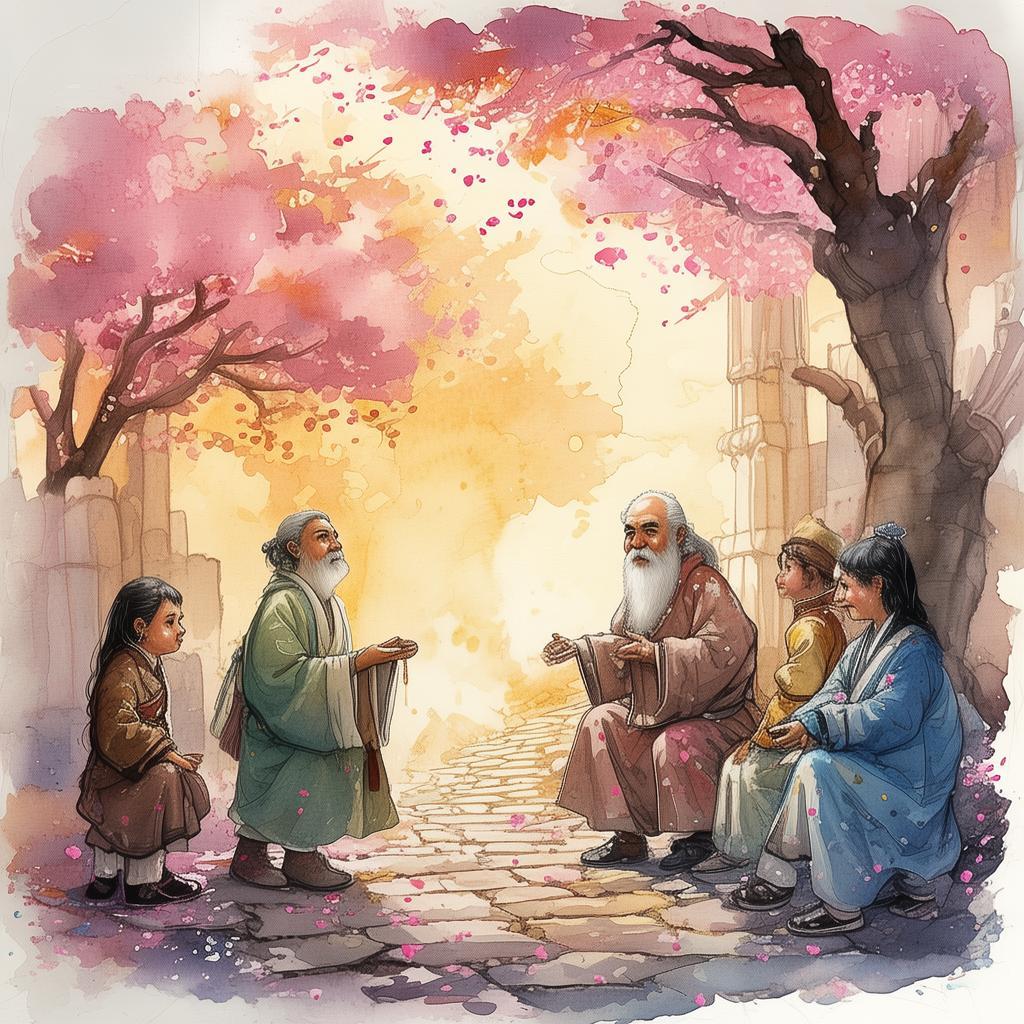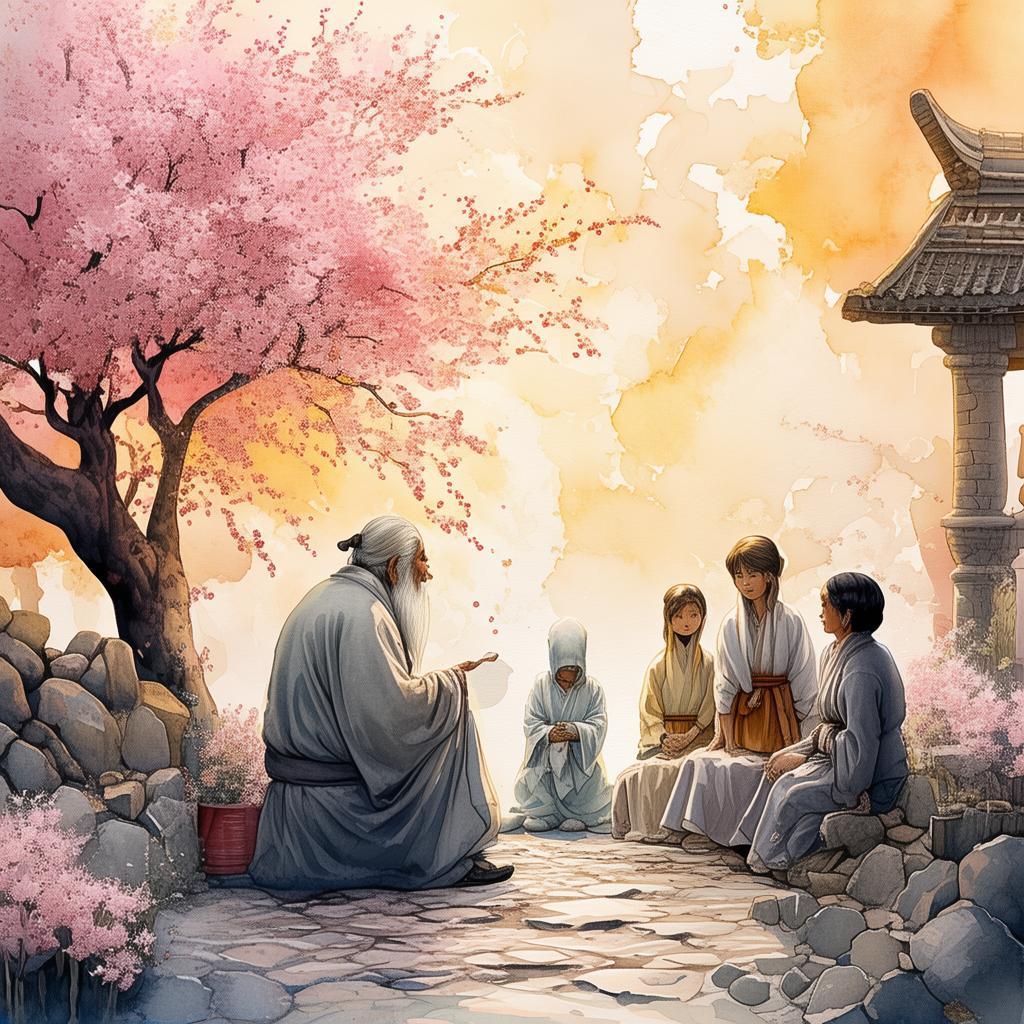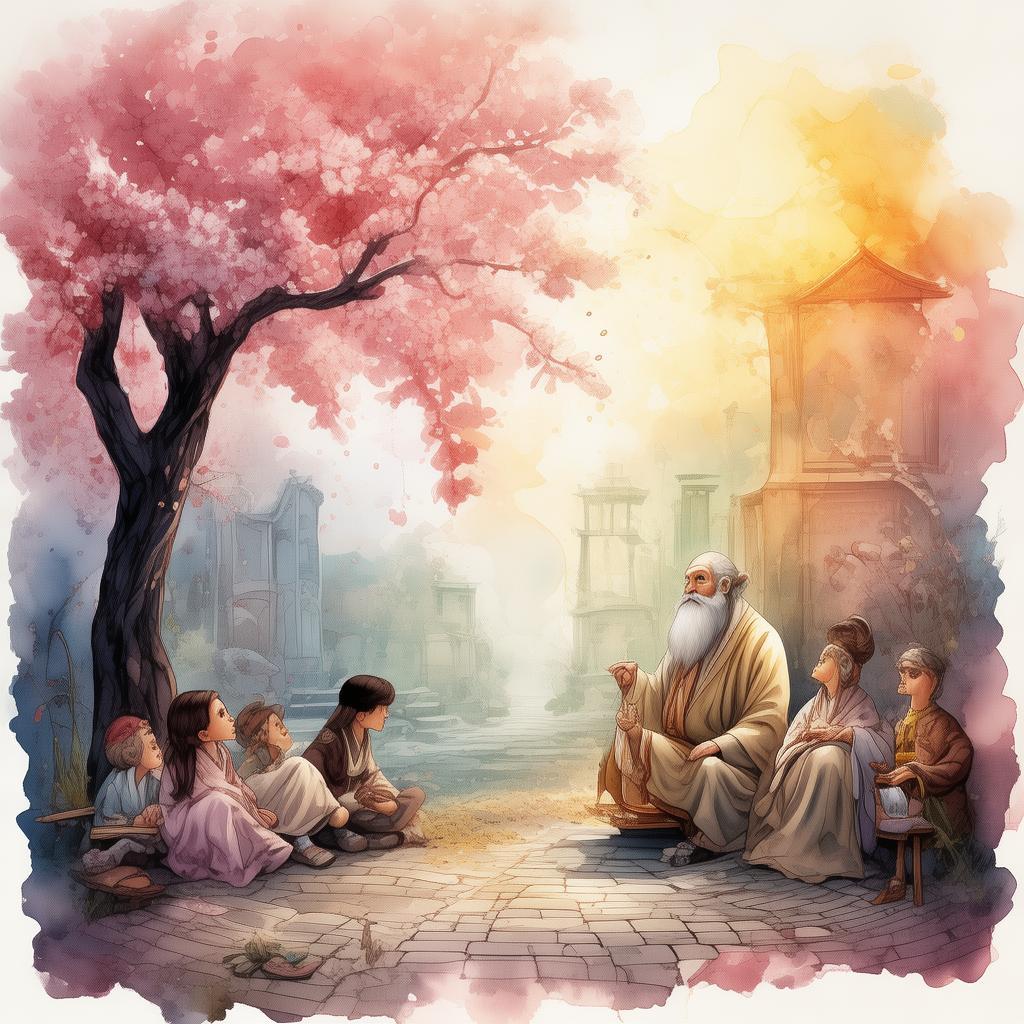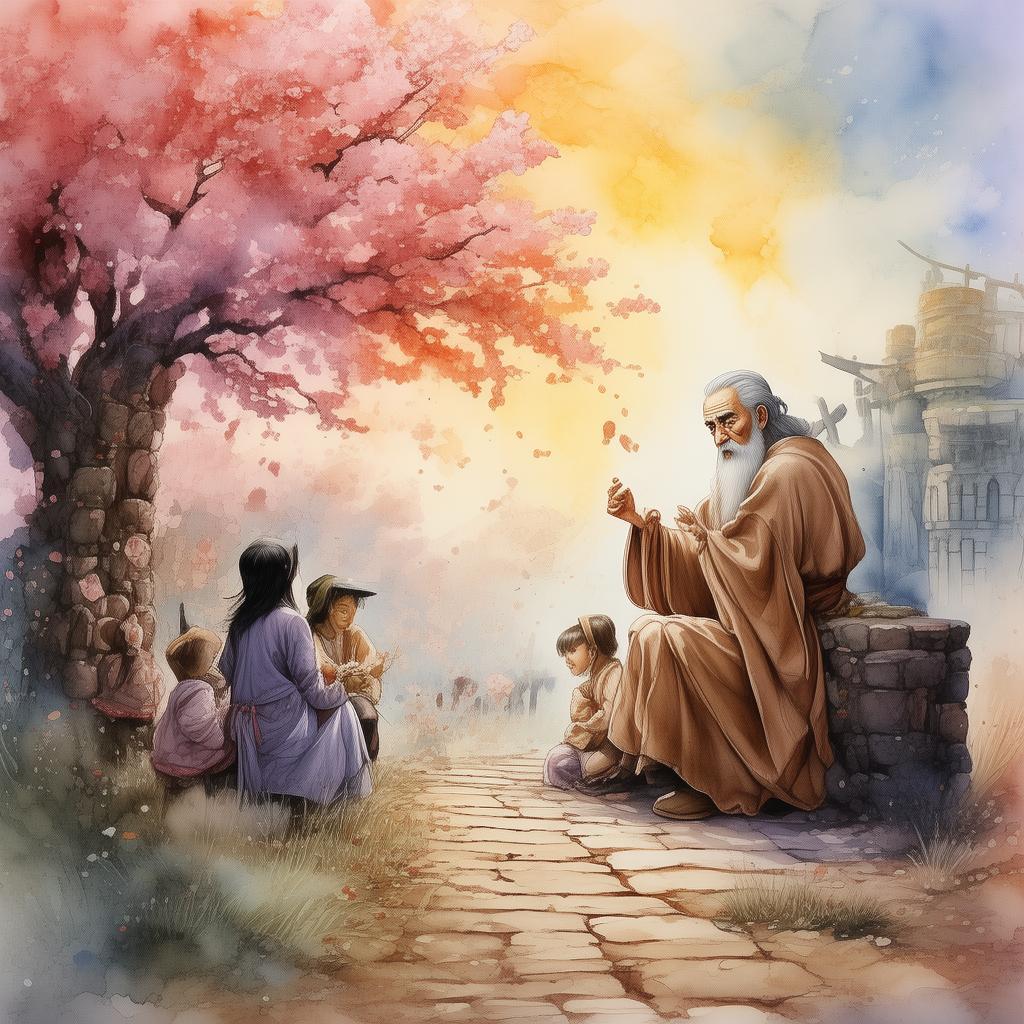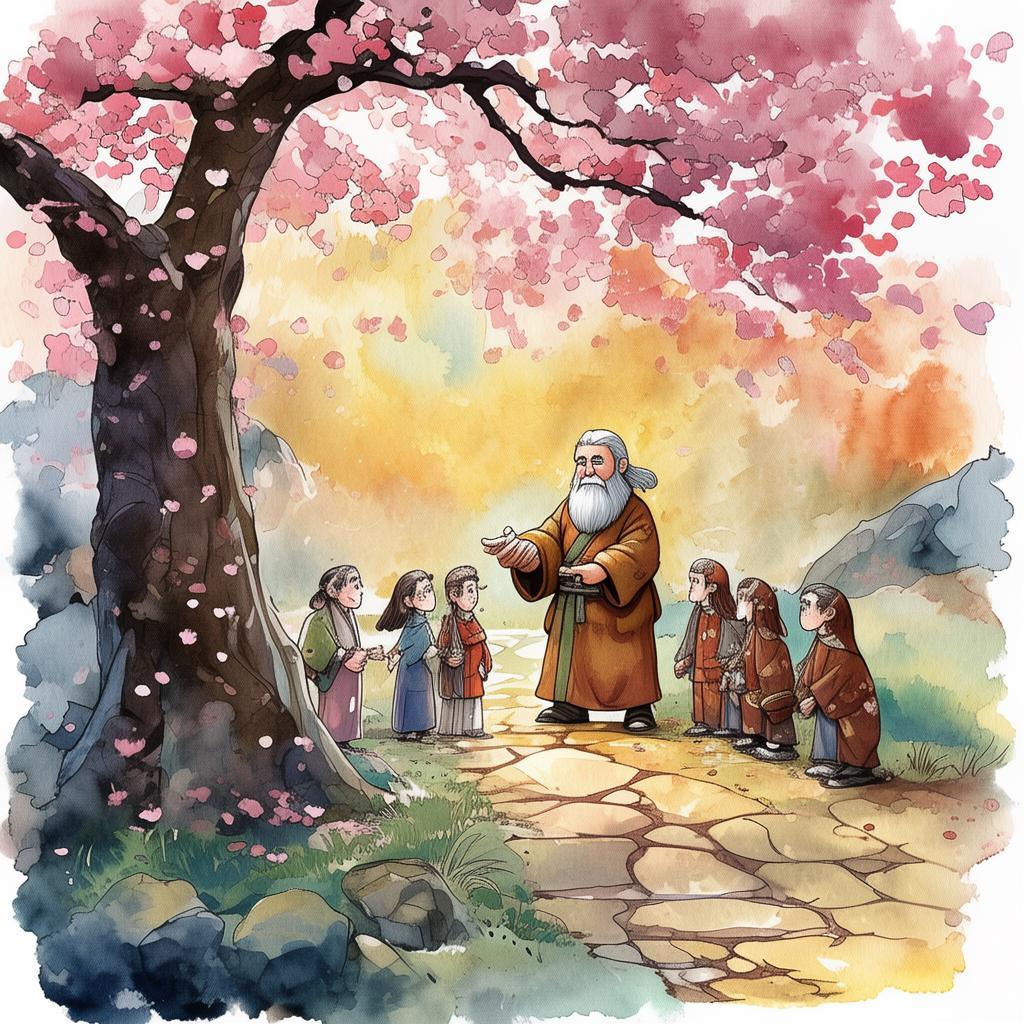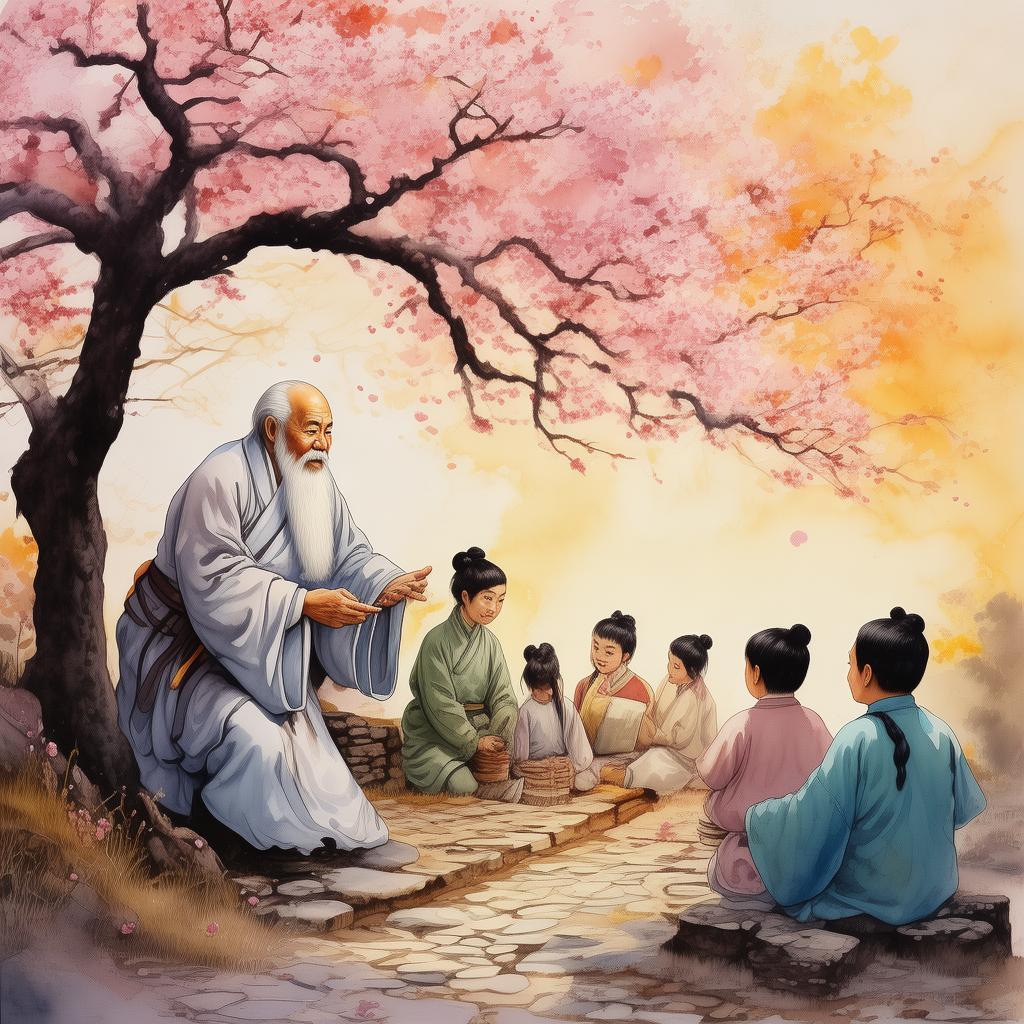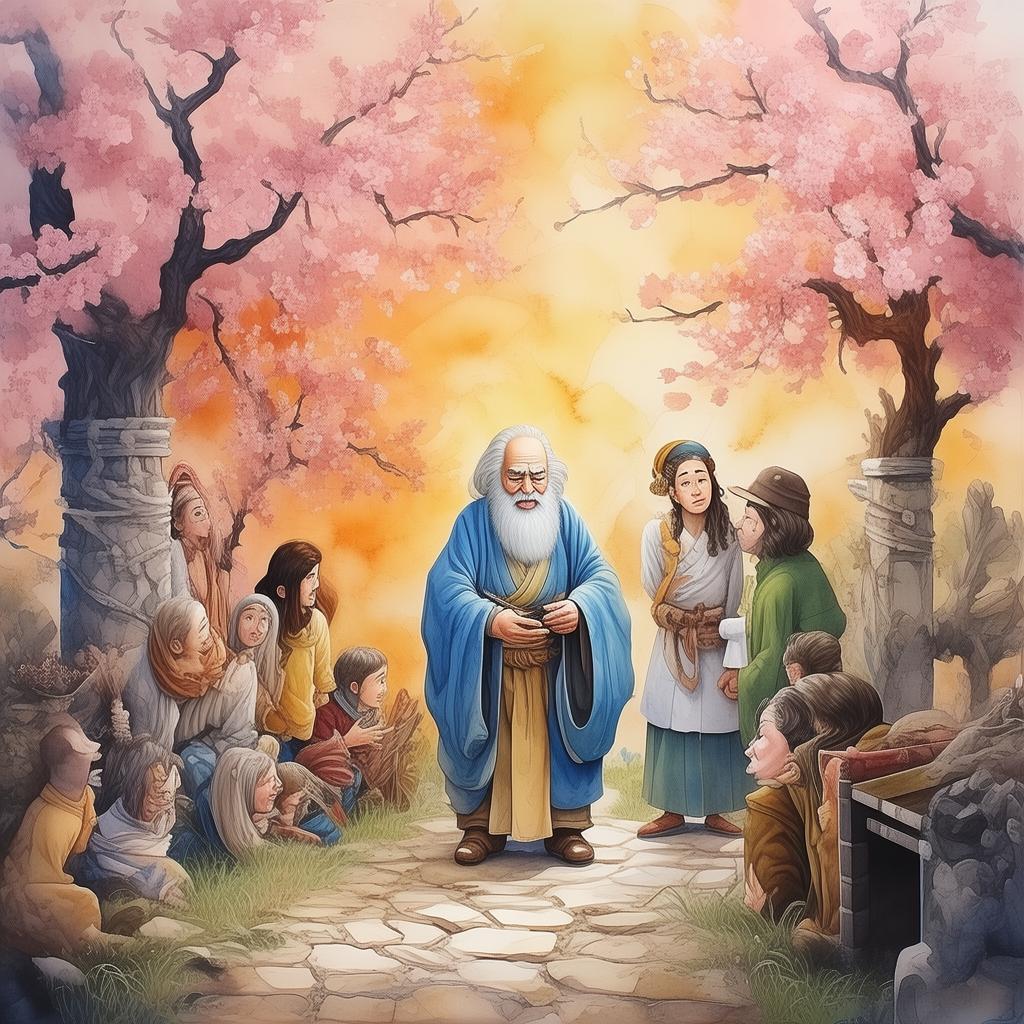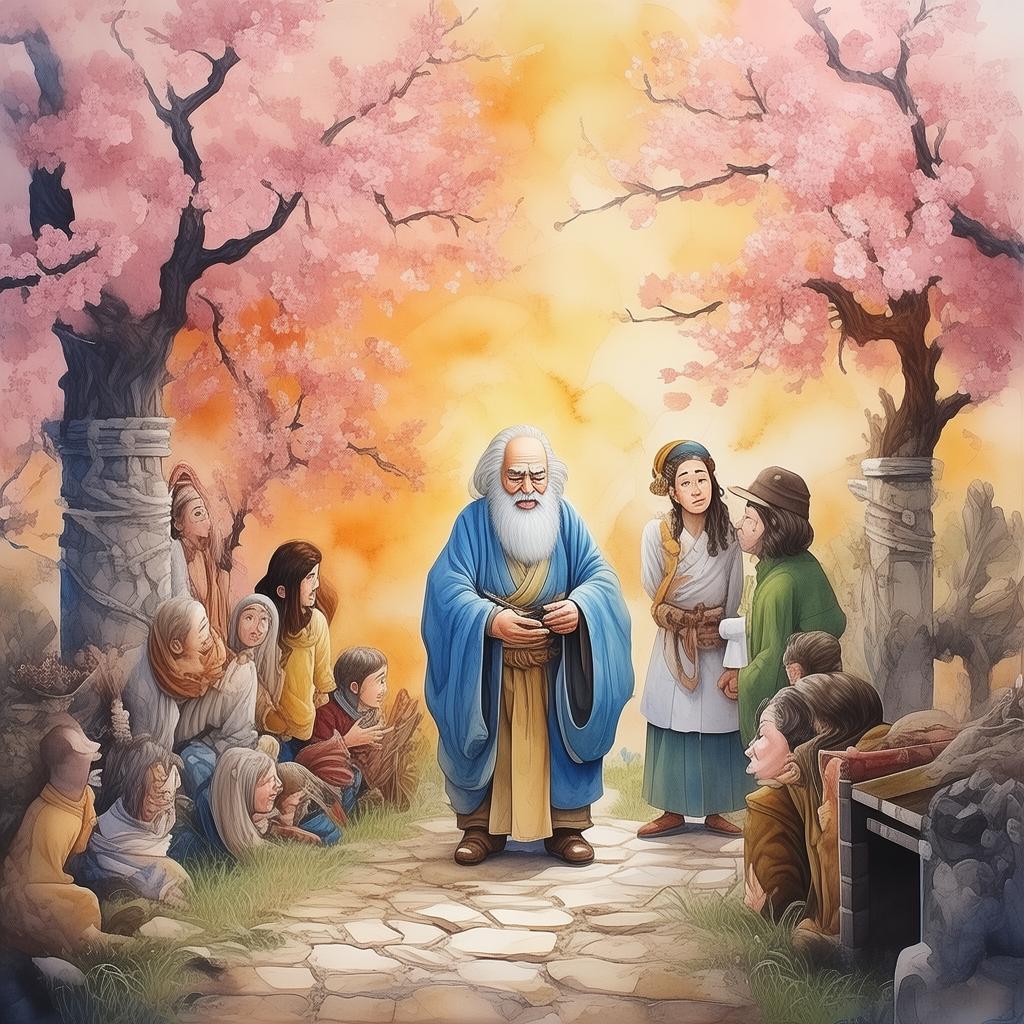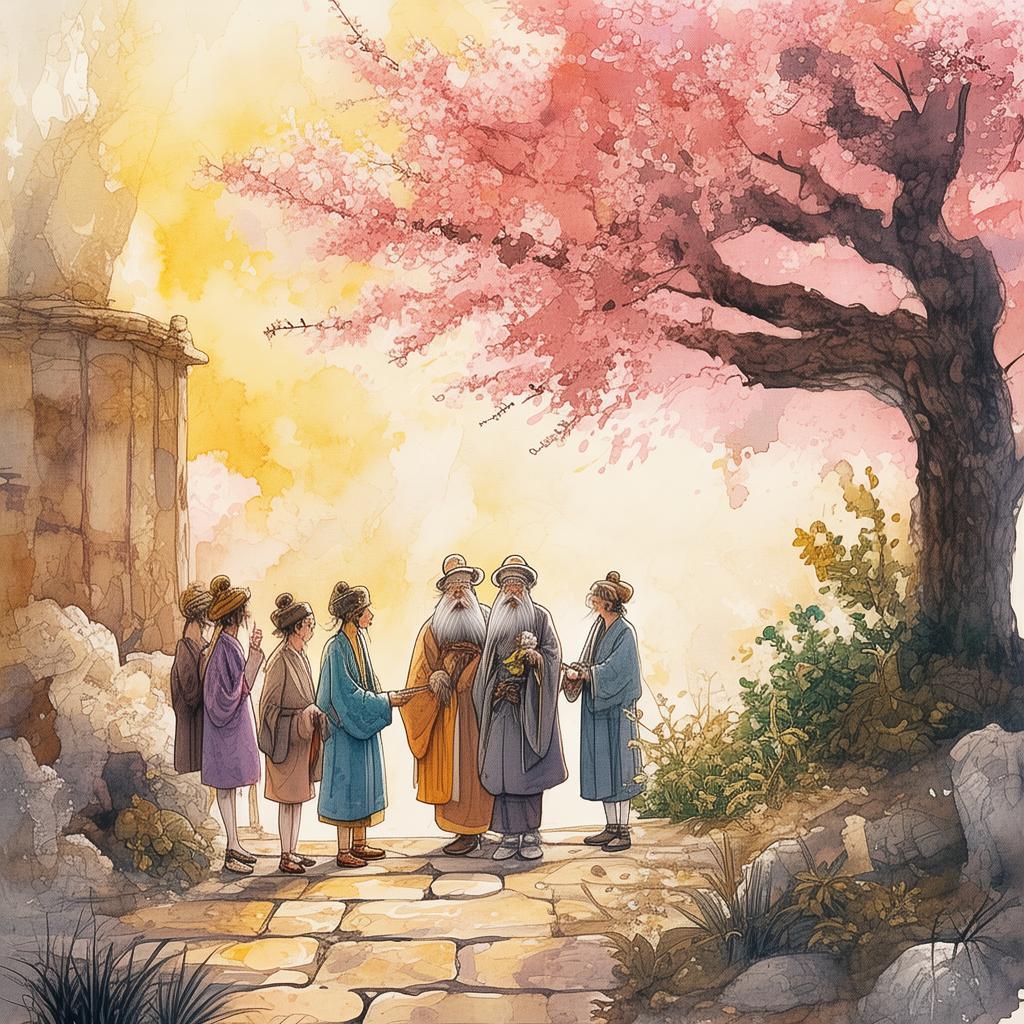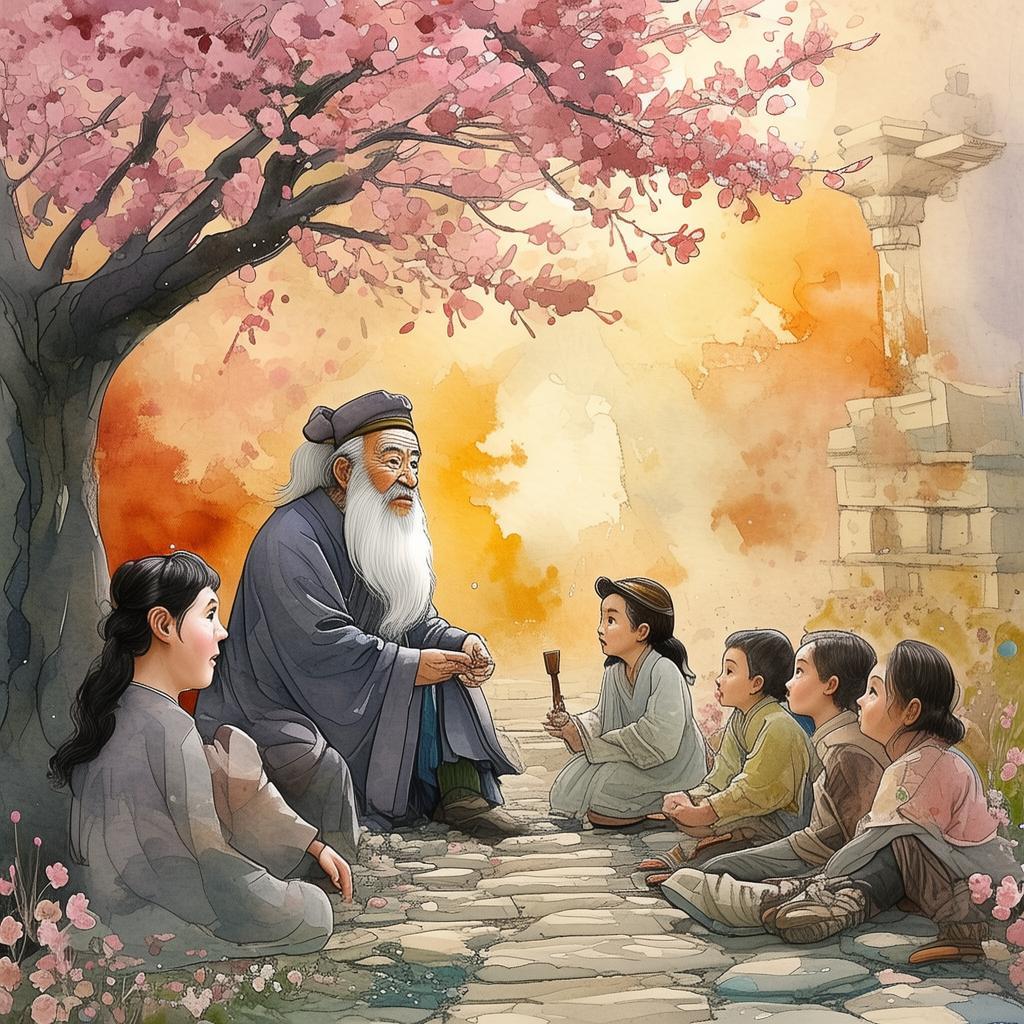Pen of Freedom: The Calligrapher's Escape
In the ancient city of Jing, where the art of calligraphy was revered as a sacred language, there lived a master calligrapher named Lin. His name was synonymous with beauty and grace, and his works were treasured by the elite. Lin's calligraphy was not just ink on paper; it was a reflection of his soul, a testament to the freedom of expression that was the essence of his being.
One fateful day, the emperor, a man who valued power over the arts, decreed that all calligraphers must serve him. They were to be confined within the walls of the imperial palace, their pens and inks under strict control. Lin, however, was not one to be easily subdued. He saw the emperor's decree as a chains of oppression, a threat to the very freedom of expression that was the lifeblood of his art.
As the calligraphers were led to their new quarters, Lin's heart was heavy. He knew that his freedom was at risk, but he also knew that he could not remain silent. In the quiet of the night, he began to write, not with ink, but with the very essence of his spirit. His calligraphy became a silent rebellion, a testament to the indomitable spirit of the human soul.
The emperor, intrigued by Lin's defiance, decided to visit the calligrapher's cell. As he gazed upon the intricate strokes and flowing lines, he felt a strange unease. The calligraphy seemed to breathe life, to tell a story that transcended the mere act of writing. The emperor, a man who had always seen the world in black and white, found himself questioning the very nature of his power.
Lin's calligraphy became a symbol of resistance, a whisper of freedom that echoed through the halls of the palace. The other calligraphers, inspired by Lin's courage, began to contribute their own works, each one a testament to the human spirit's yearning for liberation. The walls of the palace were soon adorned with art that spoke of hope and defiance.
As the days turned into weeks, the emperor's interest in Lin's art grew. He began to question his own beliefs and the nature of his rule. The calligraphy, once a tool of oppression, now became a catalyst for change. The emperor, in a moment of profound realization, decided to release the calligraphers from their chains, allowing them to return to their lives and continue their art.
Lin, now a symbol of freedom, led the way out of the palace. The calligraphers, their pens in hand, walked into the sunset, their spirits unbroken. The city of Jing, once a place of oppression, now became a beacon of hope, a testament to the power of art and the indomitable human spirit.
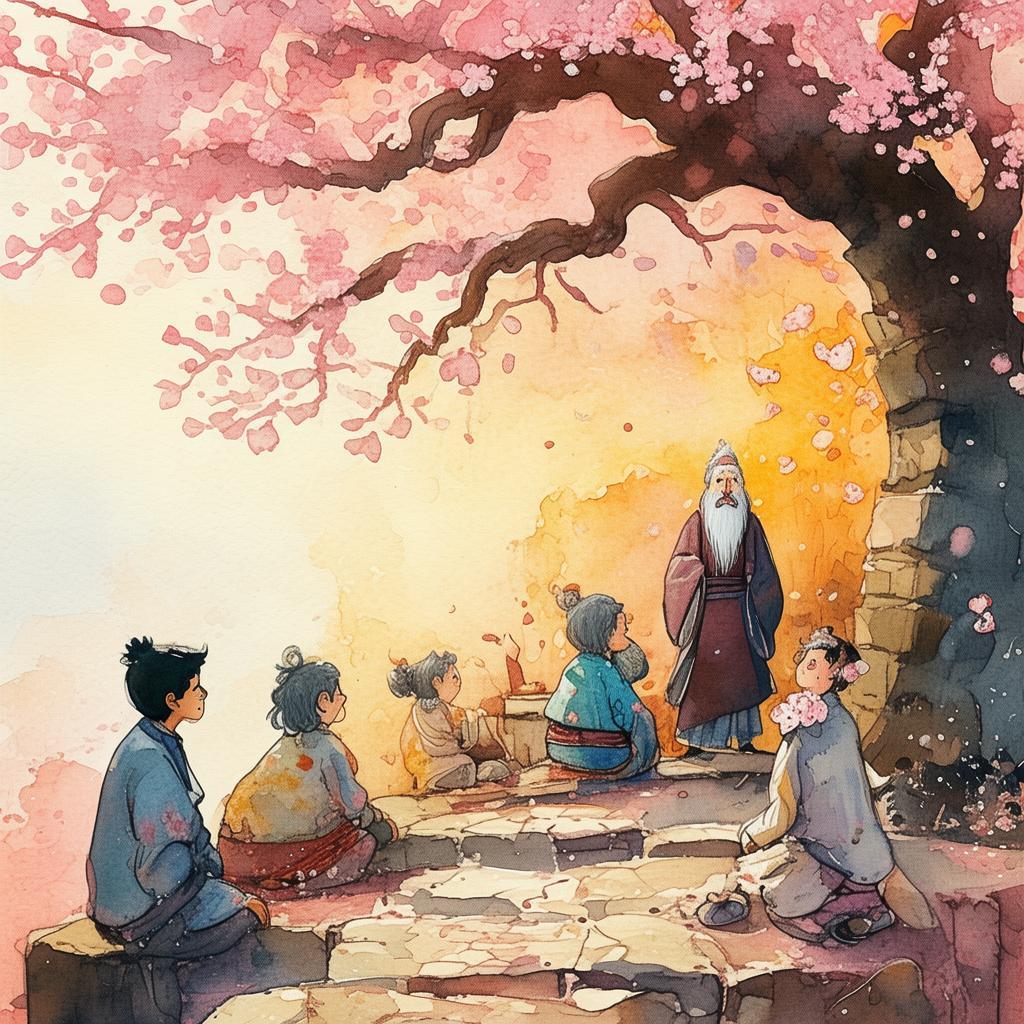
The story of Lin and his calligraphy spread far and wide, inspiring others to fight for their freedoms. The calligraphy itself became a symbol of resistance, a reminder that even in the darkest of times, the light of freedom can shine through.
Years later, a young student of calligraphy stumbled upon Lin's original works. As he traced the delicate strokes, he felt a connection to the past, to the struggle for freedom that had once gripped the city. He realized that Lin's art was not just a testament to the past, but a call to action for the future.
The student, inspired by Lin's legacy, began to write his own calligraphy, not just with ink, but with the same spirit of resistance and freedom that had driven Lin. His works, like Lin's, became a whisper of hope, a reminder that the pen is indeed mightier than the sword.
In the end, the story of Lin and his calligraphy became a legend, a tale of artistic resilience and the power of freedom. It was a story that would be told for generations, a reminder that even in the face of oppression, the human spirit can find a way to break free and write its own destiny.
✨ Original Statement ✨
All articles published on this website (including but not limited to text, images, videos, and other content) are original or authorized for reposting and are protected by relevant laws. Without the explicit written permission of this website, no individual or organization may copy, modify, repost, or use the content for commercial purposes.
If you need to quote or cooperate, please contact this site for authorization. We reserve the right to pursue legal responsibility for any unauthorized use.
Hereby declared.
